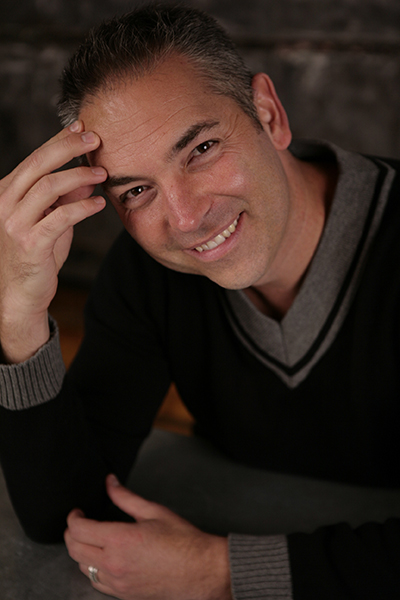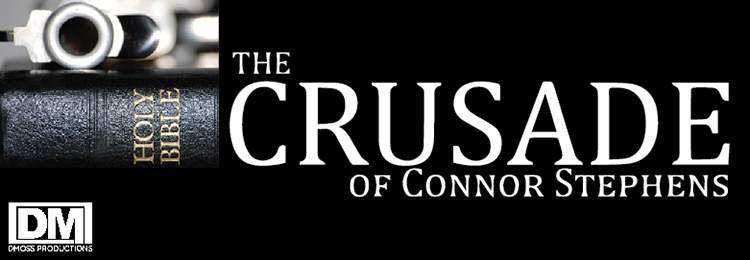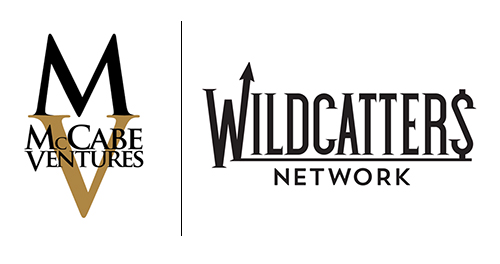
1) Tell us little about your Texas roots.
I grew up in Saginaw, Texas, just north of Fort Worth, and lived in the Fort Worth/Dallas area until I moved to New York City in 1991 to pursue a professional show business career. As the old saying goes, “You can take the boy out of Texas, but you can’t take Texas out of the boy!” Though I’ve lived in New York City for 24 years, I’m still Texan through-and-through. Texas was instrumental in my development as an artist. To this day, many people are surprised to find out that Texas is a huge and proud supporter of the arts. Growing up in Fort Worth, I had access to numerous theatrical venues including Casa Manana, world-class art museums like the Kimball Art Museum, and a healthy opera and ballet company. In addition, having studied classical piano starting at the age of 6, I lived in the shadow of the great Van Cliburn competitions where I heard stunning pianists at the peak of their abilities. Combine all this culture with some roping of calves at Rodeos, high-school football games, and terrific gospel/country music, and you have an artistic experience that is unique to Texas that influences my work to this very day! I still have close ties to Texas as my mother and sister live there, so I visit often.
2) How did you became involved in the theater?
I come from a very humble blue-collar Texas family. My father was a welder and an army vet, and my mother was a cook in the local elementary school. There were no artistic roots on either side of the immediate or extended family. So, imagine my parent’s surprise when as a 6-year-old I asked to take piano lessons on a trip to grandma’s (a story my mother still loves to tell!). Of course, not having a piano or any idea who would teach me, they said no…for while. But they soon learned they were raising a persistent little child, and eventually they decided I was serious. A $150 clunker of a piano and paying a local piano teacher $25 a week was quite the sacrifice for them – the first of many my incredibly loving and supportive parents would make for me. But it would pay off. It led to an early interest in singing and acting as well, which in turn led to a professional singing career in my teenaged years. A supportive high school drama teacher recognized my passion for theater, and offered the right educational opportunities to hone my craft and perform, which gave me the skills to land some professional acting opportunities. All this led to an acting scholarship to college, more professional training and gigs, and eventually living my goals of becoming a professional actor in the major markets (NYC/LA).
3) What was your inspiration for The Crusade of Connor Stephens?
I often write about current issues in my plays, and when I started The Crusade of Connor Stephens I initially wanted to write a play in response to the tragic school shooting at Sandy Hook. From Columbine to Sandy Hook, Charleston to Orlando, it’s hard for me to believe that acts of such violence are taking place on a regular basis in our country – almost to the point that we are numb as a society to the news. So, I wanted to put my voice out there on the subject. However, as an experienced writer and director, I know that the best plays may touch on issues, but aren’t necessarily directly about them (e.g., a play is not designed to be a documentary). What I truly wanted to do was explore how the seeds of hate are planted, and how they can then grow into such severe acts of violence. While doing some initial research and browsing YouTube videos on the subject, I came across a prominent radical preacher who was preaching what I considered to be vile, hateful speech against certain groups of people. I noted the similarities of his speech with radical Islamic speech, or other rhetoric put out by hate groups. I was transported back to my own childhood, sitting in a pew listening to the same kind of sermons, and feeling such fear and a sense of being unloved that I carried with me for many years into adulthood. And yet this kind of speech was considered normal, and part of my everyday life, as was concealing my feelings about it. Suddenly I understood what I needed to write about – the very thing I had experienced for a good portion of my life. How hatred can begin in the small, “normal” moments sometimes without even realizing it. How it can be taught in the home, in the church, at a school. And how if we only worked harder to choose love instead of hate, we might be able to change the patterns of violence. Thus, the theme of The Crusade of Connor Stephens became clear. I needed to bring the “macro” down to a “micro” level, which is why the show is about one family, on one tragic day, taking place in a single living room. While the show combines elements about our nation’s gun violence crisis, religious intolerance, LGBT issues, and other timely topics, ultimately, it’s about a family in spiritual crisis who misses the opportunity to heal by putting aside hateful differences and just loving more. We can love despite our differences. And in a time when our nation is so divided on so many different issues, that’s what I hope audiences – no matter what side of the issues they may fall on – take away from the experience of having seen the play.
4) How was the play initially received when it was debuted at the 2016 Midtown International Theater Festival?
Regular theater-goer audiences in New York City can be tough. As opposed to large-scale musicals that attract a hefty tourist business, the hardcore local theater audiences are the ones that attend festivals. It’s a good test to see how the show will play for a larger audience and see if the show has commercial potential. The show received enthusiastic standing ovations at every performance – but that wasn’t what made me know we had something special on our hands. As I stood in the back of the audience as I always do, I watched the audience’s response carefully. Each night there was total absorption – complete quiet with an almost tangible energy in the air. It’s an experience you can only have in the theater, and when you feel it from the audience, you know the show is working. After the festival, the show was nominated for 11 festival awards, winning 7 in all the major categories: Outstanding Festival Production, Best Playwright, Best Director, Best Actor, Best Actress, Best Supporting Actor and Best Supporting Actress.
5) James Kiberd, of All My Children fame, won Best Actor at the Festival. How were you able to land Kiberd in such an important role?
The simple answer is actors like to do good work, but there also has to be a little kismet involved. When James Kiberd was playing Trevor Dillon on All My Children a national survey rated him 11th in people’s favorite and most recognizable celebrities (Steve Martin was 12th and Will Smith was 13th for some perspective). He made numerous appearances on Oprah and other talk shows, and became a celebrity ambassador for UNICEF. When he left All My Children, he starred in movies and theater, and also became a world-class artist with major art exhibitions. The search for “Big Jim” in Connor Stephens, a hardcore radicalized preacher, was not an easy one. The role is larger than life, and takes an incredible soul-searching journey throughout the play, and most importantly must be liked by the audience despite their overall viewpoint of him. It required a truly talented and special actor. Ben Curtis, who often is remembered as the “Dell Dude” and had been with the project since our first public reading of the play as “Jim Jr.,” called me and suggested his friend James Kiberd for the Big Jim role. I had auditioned a number of people and had a series of auditions slated the following week, so I contacted James and invited him to audition. I got back an email that was an in-depth analysis of the play, it’s importance to society as he saw it, along with his enthusiasm about playing the role. He noted he “wanted to audition, however – not just be given the role.” I thought that was an odd comment considering I had invited him to audition, not made him an offer for the role! I then found out that James had been injured a number of years ago on a theater job, and had just undergone a hip replacement. Thus, he couldn’t attend the scheduled auditions – but he truly wanted to audition, and invited me to his house to meet and discuss the play. He and his wife (Susan Keith of Another World fame) live a short drive from Manhattan, so off I went one Saturday morning to meet James. On the way up I kept thinking, “How do I make a graceful exit from his house in the event that he auditions terribly??!!” I was met at the door with this larger-than-life ball of joy that is James, and we both wanted to get right to the audition. Luckily, I didn’t have to make a graceful exit – or any kind of exit at all. James gave a spectacular reading of Big Jim, and we spent the next 4 hours on his porch talking about the show, its potential, and his interpretation of Big Jim. I offered him the role on the spot, and the rest is history.
6) With the June 26 Opening Night fast approaching, how are your excitement and stress levels?
It is coming fast! As director, I’m nothing but excited to see the show develop, deepen, and get back on its feet for audiences. As Producer – that’s where the stress comes in! But it’s the good kind of “business” stress. Putting up a commercial show is much like launching a startup business in any other industry, and a Lead Producer you are the CEO. You have to first find front money (Angel) funding that allows you to make the product (the show) a reality – get your General Management (similar to the CFO of a business) team together, contract with a theatrical venue (which can take months to a year of searching/wooing theater owners), and get a launch date on the calendar. Only then can you really start finding significant funding from investors. Of course, once you have the date, now there’s a limited time to capitalize the show as all commercial shows must freeze capitalization by opening night. And sometimes producers don’t make it, thus having to shut the production down at the last minute after an immense amount of hard work. So, it’s literally a race to capitalize hundreds-of-thousands to millions of dollars in a very short time period, depending on the show’s requirements. And after all that, there’s no guarantee that the show will be hit or how long it may run. Show business is a very high-risk investment, and not for the faint-of-heart on the producing or investment end. But the rewards and unlike any other – a chance to be a part of creating a piece of art that could be long-lasting, have great impact on society and civil issues, and – yes – over time, with a successful production plus subsidiary rights for 10 years, may even recoup investments and make a solid profit. Most commercial shows are raising money right up until opening night. Stressful? You bet! And with June 26th quickly approaching, we’re right in the middle of our big push for investment funds. So, I’m excited and stressed at the same time.
7) What’s next for Dewey Moss? Any exciting new projects on the horizon?
I always have a few “irons in the fire.” After The Crusade of Connor Stephens (or perhaps toward the end of its run), we would like to mount my other award-winning play, Death of the Persian Prince. I am currently also working on a comic musical called The Southern Baptist Biddy Band (and their dirty little secret), and new play called “The Molly Ring Cycle” and have written the book and lyrics for a new dance musical based on the biblical story of Esther, which is currently slated to star some well-known dancers from Dancing with the Stars. I am also co-producer on a new musical called Hit Her With the Skates, an affectionate homage to the 70’s roller rink culture that I describe as Grease meets Hairspray with a dash of Xanadu!



